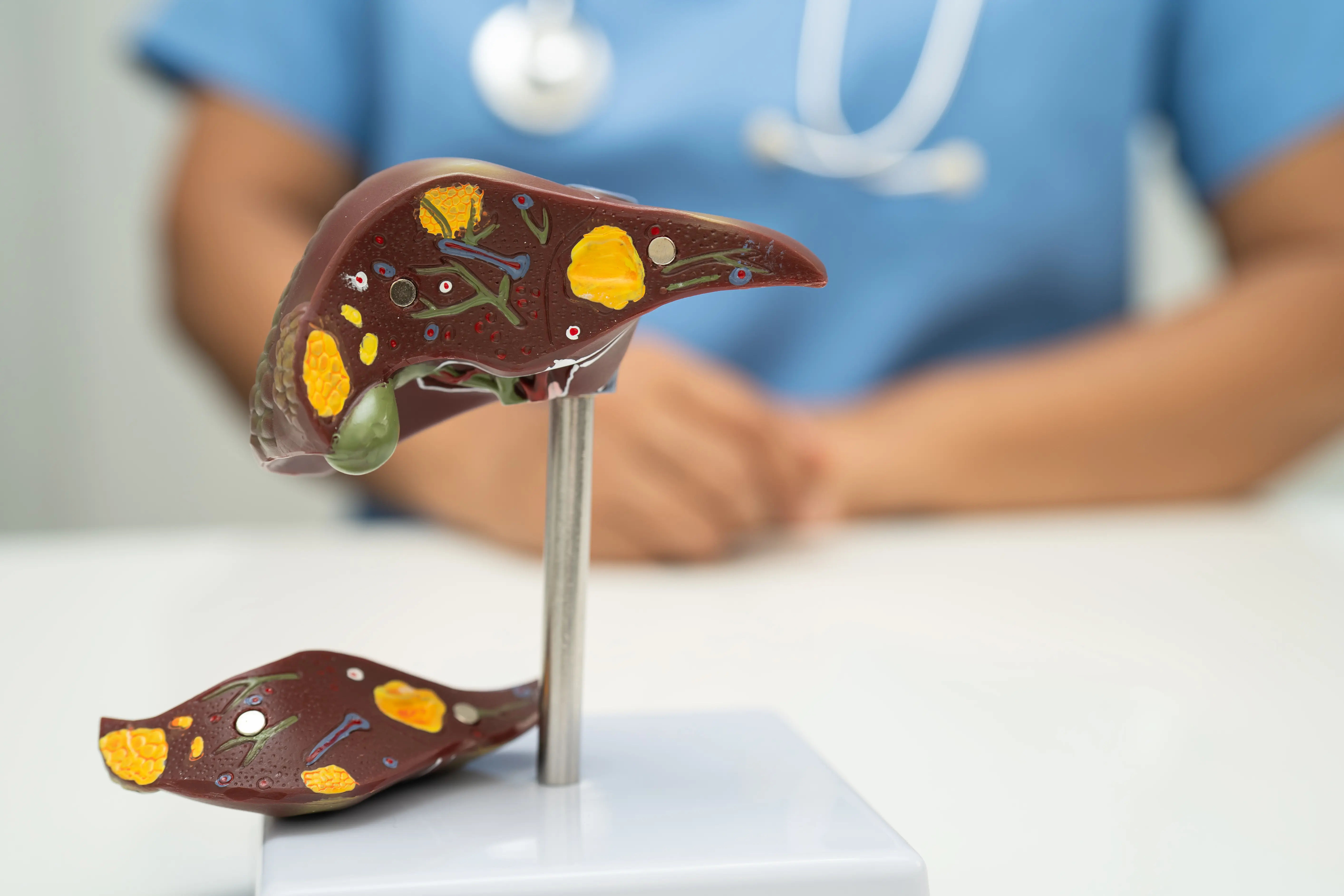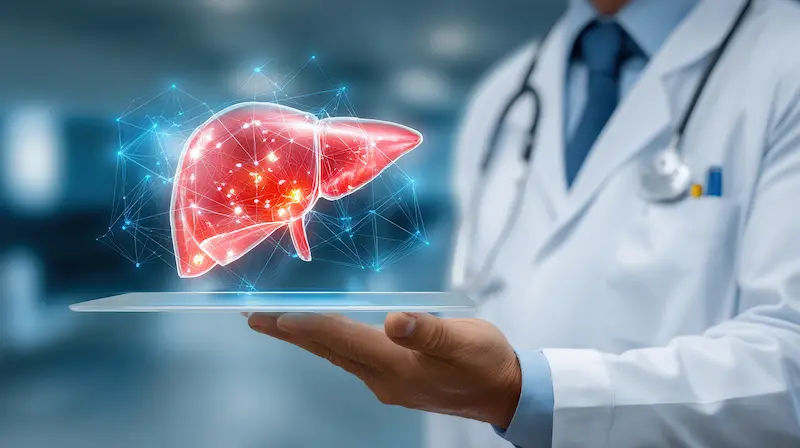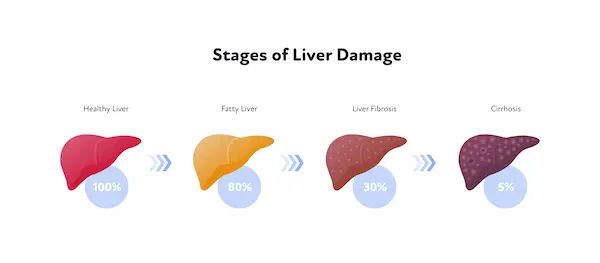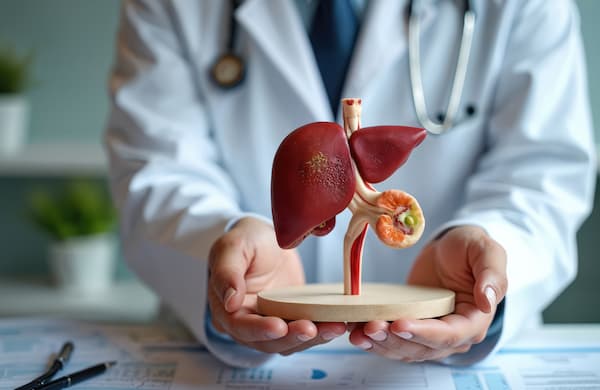Liver Fluke: Causes, Symptoms, and Treatments
Know about the liver fluke, causes, symptoms and treatments. Learn how to prevent the liver fluke infection.


Introduction
The liver is one of the most vital organs in our body, helping with digestion, detoxification, and metabolism. However, certain infections, like liver fluke disease, can harm its functioning. If you or someone you know has been diagnosed with liver fluke infection or is experiencing symptoms, this article will help you understand the condition better and guide you on how to manage it.
What is Liver Fluke?
Liver flukes are parasitic flatworms that infect the liver, bile ducts, and gallbladder. These tiny worms can cause inflammation, blockages, and long-term damage if left untreated.
There are different types of liver flukes, but the most common ones affecting humans are:
- Fasciola hepatica (found in sheep, cattle, and humans)
- Clonorchis sinensis (common in Asia)
- Opisthorchis species (found in Southeast Asia and Europe)
These parasites enter the body through contaminated food or water and settle in the liver, where they grow and reproduce.
Consult General Practitioner for Personalised Advice
How Do You Get Liver Fluke Infection?
Liver fluke infection occurs when a person consumes contaminated food or water. The main causes include:
- Eating Raw or Undercooked Fish/Plants – In many cultures, dishes like sushi, sashimi, or undercooked freshwater
fish can contain liver fluke larvae. Similarly, watercress and other raw aquatic plants may carry the parasite. - Drinking Contaminated Water – Drinking untreated water from ponds, rivers, or streams where fluke eggs are
present can lead to infection. - Poor Sanitation – In areas with inadequate sewage systems, human and animal waste can contaminate water sources, increasing the risk.
Symptoms of Liver Fluke Infection
Many people with a mild liver fluke infection may not show symptoms immediately. However, as the infection
progresses, symptoms may include:
Early Stage (Acute Phase – First Few Weeks)
Early stage symptoms include:
- Fever and chills
- Abdominal pain (especially on the right side under the ribs)
- Nausea and vomiting
- Diarrhea
- Loss of appetite
- Fatigue
Chronic Stage (Long-Term Infection – Months to Years Later)
If untreated, liver flukes can cause severe complications, such as:
Jaundice (yellowing of skin and eyes)
- Swelling in the abdomen (due to fluid buildup)
- Itchy skin
- Weight loss
- Dark urine and pale stools
- Enlarged liver
- In rare cases, long-term infections can lead to liver cirrhosis, bile duct blockages, or even liver cancer.
How is Liver Fluke Diagnosed?
If you experience persistent symptoms, consult a doctor. Diagnosis may involve:
- Blood Tests – To check for antibodies or signs of infection.
- Stool Tests – To detect fluke eggs in faeces.
- Imaging Tests – Ultrasound, CT scan, or MRI to examine liver damage.
- Endoscopic Procedures – ERCP (Endoscopic Retrograde Cholangiopancreatography) to check the bile ducts.
Treatment for Liver Fluke Infection
The good news is that liver fluke infections are treatable with antiparasitic medications. Common treatments include:
- Triclabendazole – The most effective drug for Fasciola infections.
- Praziquantel or Albendazole – Used for other types of liver flukes.
Your doctor will prescribe the right medication based on the type of infection. In severe cases with bile duct blockages, surgery may be needed.
How to Prevent Liver Fluke Infection?
Prevention is always better than a cure. Here are some simple steps to reduce your risk:
- Avoid Raw or Undercooked Fish/Plants – Cook fish thoroughly (at least 145°F/63°C) and avoid eating raw water
plants. - Drink Safe Water – Boil or filter water from natural sources before drinking.
- Practice Good Hygiene – Wash hands before eating and after handling raw fish.
- Proper Food Handling – Clean utensils and cutting boards used for raw fish separately.
- Regular Deworming for Pets/Livestock – If you live in high-risk areas, ensure animals are treated for parasites.
When to See a Doctor?
If you experience persistent abdominal pain, jaundice, or unexplained weight loss, consult a doctor immediately. Early
diagnosis and treatment can prevent complications.
Final Thoughts
Liver fluke infections are preventable and treatable if detected early. By following simple hygiene and food safety practices, you can protect yourself and your family. If you have any concerns, don’t hesitate to seek medical advice.
Consult General Practitioner for Personalised Advice
Consult General Practitioner for Personalised Advice

Dr. Vivek D
General Physician
4 Years • MBBS
Bengaluru
PRESTIGE SHANTHINIKETAN - SOCIETY CLINIC, Bengaluru

Dr Syed Mateen Pasha
General Physician
2 Years • MBBS
Bengaluru
PRESTIGE SHANTHINIKETAN - SOCIETY CLINIC, Bengaluru

Dr. Anand Ravi
General Physician
2 Years • MBBS
Bengaluru
PRESTIGE SHANTHINIKETAN - SOCIETY CLINIC, Bengaluru

Dr. Syed Ismail Ali
General Practitioner
7 Years • MBBS
Hyderabad
Apollo 24|7 Clinic, Hyderabad

Dr. Madhuri Sai Sreepada
General Practitioner
9 Years • MBBS
Hyderabad
BRIGHT SMILES MEDICARE & DENTAL CARE, Hyderabad
Consult General Practitioner for Personalised Advice

Dr. Vivek D
General Physician
4 Years • MBBS
Bengaluru
PRESTIGE SHANTHINIKETAN - SOCIETY CLINIC, Bengaluru

Dr Syed Mateen Pasha
General Physician
2 Years • MBBS
Bengaluru
PRESTIGE SHANTHINIKETAN - SOCIETY CLINIC, Bengaluru

Dr. Anand Ravi
General Physician
2 Years • MBBS
Bengaluru
PRESTIGE SHANTHINIKETAN - SOCIETY CLINIC, Bengaluru

Dr. Syed Ismail Ali
General Practitioner
7 Years • MBBS
Hyderabad
Apollo 24|7 Clinic, Hyderabad

Dr. Madhuri Sai Sreepada
General Practitioner
9 Years • MBBS
Hyderabad
BRIGHT SMILES MEDICARE & DENTAL CARE, Hyderabad




